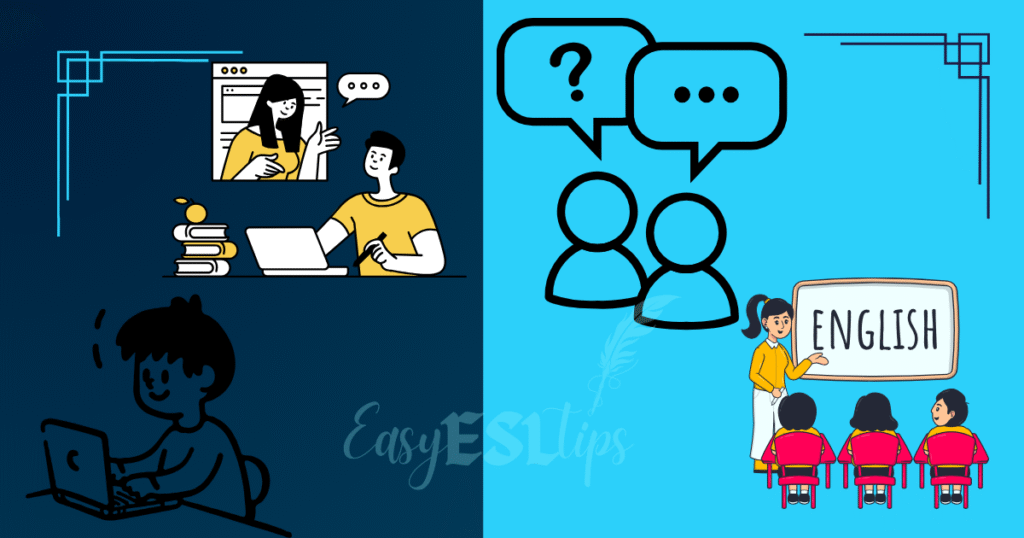
Welcome to Easy ESL Tips!
Hey there, and welcome to Easy ESL Tips! We’re so glad you found us.
This blog was created with one goal in mind—to help parents like you make informed, confident decisions about enrolling your child in an online English program. We know how important it is to find a learning environment that’s not only effective but also fun, safe, and supportive. That’s why we’re here to share honest advice, helpful tips, and real experiences about learning English online.
Behind the blog is a passionate ESL teacher with over a decade of classroom and online teaching experience. From lesson planning to pronunciation practice, I’ve seen what works (and what doesn’t!)—and I’m here to pass that knowledge on to you. Whether you’re just starting to explore online English options or already have a little learner enrolled, you’ll find resources here to guide you every step of the way.
We also understand that not all programs are created equal. That’s why we take the time to review and recommend the Novakid School platform.
This blog is independently operated and contains affiliate links to Novakid, a program we trust and truly believe can help children succeed in learning English. If you choose to sign up through our links, it helps support the blog at no extra cost to you—so thank you!
At Easy ESL Tips, our mission is simple: make the journey to English fluency a little easier, one tip at a time.
Have questions? Want to share your story? We’d love to hear from you!
Thanks for stopping by and happy learning!
FAQs
What is an ESL program, and how does it work?
An ESL (English as a Second Language) program helps non-native English speakers learn and improve their English skills. These programs are often structured to teach vocabulary, grammar, pronunciation, listening, speaking, reading, and writing. Online ESL programs usually involve live classes with a qualified teacher, interactive lessons, and fun activities to keep kids engaged.
What age is best to start learning English?
Children can start learning English as early as age 3. At a young age, they’re more receptive to language sounds and patterns, making it easier to pick up pronunciation and vocabulary naturally. However, it’s never too late to start—ESL programs are available for all ages and learning levels.
How do I know if an ESL program is right for my child?
A good ESL program should match your child’s age, current language level, learning style, and personality. Look for programs that offer trial classes, structured lesson plans, engaging materials, and qualified teachers. Reviews and testimonials from other parents can also help guide your decision.
What should I look for in an online ESL teacher?
The best ESL teachers are patient, enthusiastic, and experienced in teaching English to children. They should also be certified (e.g., TEFL, TESOL) and able to adapt lessons to suit your child’s pace and interests. Some platforms allow you to choose or change teachers to find the best fit.

